Which track is right for you?
The UG has instituted a Recognition and Rewards Committee, whose task is to make strides towards recognizing and rewarding this broader set of qualities and skills within the organization.
The Committee has come up with five UG tracks that combine the quality of teaching and research, and a pleasant work environment with room for everyone’s talent.
Five UG tracks
Career pathways
Career pathways
Introducing diversity into career pathways is one of the five tracks that have been defined in the UG’s Recognition and Rewards programme. By making career pathways more dynamic, flexible, and individualized, we will improve our ability to assign talent to the right roles and positions in the organization. All faculties have committed to this objective and will start investing in the diversification of career pathways. A framework has been developed based on an adopted vision. This framework forms the basis for a number of concrete recommendations for faculties to follow up.
Vision
The UG is committed to creating an inspiring, sustainable, and safe work environment in which staff feel recognized and rewarded, and where they have the opportunity to invest in their career. We give talent the space to thrive by offering them a variety of career pathways focusing on research, teaching, social impact, and healthcare.
Approach
We have developed a two-pronged framework to give structure to this track:
1. Creation of new academic career pathways
New and diverse career pathways are being developed to enable academics to continue their learning and deepen their development in specific domains, such as teaching, research, and impact. Examples are the teaching/leadership career pathway at the University Medical Center Groningen (UMCG) and the teaching-oriented academic career pathways at the Faculty of Economics and Business (FEB), the Faculty of Science and Engineering (FSE), and the UMCG.
Joke Fleer, Associate Professor of Health Psychology, Faculty of Medical Sciences (UMCG), and member of the Recognition and Rewards Committee
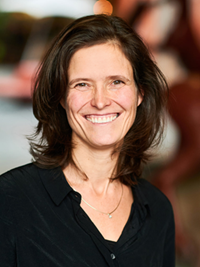
‘In line with the vision of the Recognition & Rewards programme, the UMCG has recently introduced four career development tracks for academics with profiles focusing on healthcare, research, society and knowledge-sharing, and teaching. I personally enrolled in the UMCG talent track in 2020 as a researcher with a teaching profile. I plan to use the experiences and insights I have gained within this track to improve the career perspectives of UG teaching staff (whether or not they have research ambitions).’
2. Flexibility in existing career pathways
Existing career pathways are tailored to individual staff members’ preferences, while complying with the faculty’s strategic objectives and organizational goals. By offering more flexibility in existing career pathways and making agreements to emphasize certain aspects of the work, we encourage diversity and drive the development journey of both our staff and the organization. Examples include the amended, flexible career pathways at the Faculty of Spatial Sciences and the Faculty of Philosophy.
More information
For more information about the vision, the framework, and the recommendations on UG career pathways, please consult the vision document/framework for teaching career pathways. This document was drawn up following in-depth sessions with all 11 faculties. During these sessions, we discussed which perspectives they see for teaching career pathways, which initiatives they are taking to implement such pathways, and what type of support they need from the Recognition and Rewards Committee.
Downloads
-
Framework Career Paths Education [PDF]
Quality assessment
Quality assessment
In assessing research and academic quality, the UG will focus more on subject matter, social impact, creativity, and sustainability and less on indicators such as publishing frequency or number of citations. This calls for everyone at the UG to adopt a new and different approach to recognition and rewards.
Vision
Quality is leading
In assessing academics, greater focus will be placed on qualitative factors and less focus on quantitative factors. Using a mix of qualitative and quantitative performance indicators in assessing researchers will paint a more accurate picture of their research activities.
Fair assessment
It is essential to the fair assessment of researchers that the assessment methodology should be transparent and as objective as possible – especially if intersubjective performance indicators are involved. Each researcher should know exactly which assessment criteria will be applied to them and how the assessment has come about.
Key areas of the ‘new’ assessment methodology
Research
What is the quality level of the research and the related outcomes? What is the level of academic impact of the research in the research domain? Does the research align with the long-term research focus? These are some of the questions that need to be answered when assessing research quality.
More information
For more information about the framework for assessing individual academics, please consult this document:
Teaching
Teaching and research go hand in hand at the UG. This means that academics have to possess qualities and competencies in both areas. We will start considering this skill combination as a criterion in assessing teaching quality.
Impact
In today’s day and age, good research is expected to create academic and social impact, and to encourage public engagement. This is reflected in the call for more scope for open science, by which researchers make their research openly available to the public and other researchers.
Approach
Within the research domain, initial steps have been taken to change the method for assessing research quality based on the updated vision. One of these steps was to adopt guidelines for responsible research assessment. For a list of evaluation practices to avoid and positive alternatives to use in assessing research, and hiring, recognizing and rewarding researchers, please consult the page on responsible research assessment.
Leadership
Leadership
What is effective leadership and what do we expect of you as a leader in our organization? In this UG track, we as an organization define how we will encourage, recognize, and reward effective leadership. The objective: collaborating effectively to achieve excellent results in a pleasant and safe work environment. To reach this goal, we have formulated a vision of leadership in which we describe what leadership is, what type of leadership we expect of our staff, and which leadership roles there are. We have formulated our vision of leadership based on dialogue sessions with a large number of colleagues from different faculties who work in a variety of positions, and range in terms of their ages, backgrounds, and areas of expertise. We also asked a number of leadership experts at the University to provide input.
Vision
What is effective leadership? What constitutes effective leadership depends on the context. Examples of effective leadership behaviours are: taking ownership, collaborating, being open-minded, and serving as an inspiration to others. But an effective leader is also expected to monitor outcomes and track budgets.
What do we expect in terms of leadership and leadership behaviours?
We expect our staff to have the leadership skills that befit the leadership or other role they have in the organization. This means that we will recognize and reward effective leadership, and will engage with staff if we find their leadership skills to be lacking. While we do not expect everyone in our organization to be born leaders, we do encourage effective leadership. Besides, the recognition of leadership as an important skill is a token of appreciation for the time invested in becoming an effective leader and the time spent on the relevant functional support, for instance by HR, IT, and Finance.
Leadership roles at the UG
We have identified four leadership roles at the UG. These roles partially overlap in practice, meaning that – depending on their position – a staff member may fulfill a number of these roles at the same time. For our staff to be successful in these roles, we expect all of them to develop the basic skills and competencies that are appropriate to their respective roles.
Personal leadership: focus on self
In addition to leading others, personal leadership is about self-awareness and the ability to manage yourself. This involves actions and behaviours such as setting goals, working on your own development, showing commitment, collaborating, delivering on promises, being open to asking for help, and helping others.
Individual leadership: focus on others
There are many people at the UG who manage others, either in a formal or informal capacity. If you serve as a manager, we expect you to have motivational interviewing skills, to understand what a person needs to improve their performance, to offer tailored guidance and support, and to address a person’s poor performance or inappropriate behaviour.
Group leadership: focus on group
If you manage a diverse group of people at the UG, you are responsible for creating a safe and inclusive work environment in which they can collaborate as a professional and effective team. Effective group leadership hinges on setting strategic and collective goals, providing clarity, defining frameworks, monitoring boundaries, and resolving conflicts. You are the first point of contact in such matters, both for the group and for the organization.
Organizational leadership: focus on organization
Managing an organization or a division of an organization, such as a university, faculty or institute, calls for organizational leadership skills. These skills include the capability to develop a long-term vision, define a strategy, take difficult decisions, and demonstrate political sensitivity, as well as the ability to build and maintain various administrative and other networks.
Approach
We are committed to recognizing and rewarding effective leadership at all levels of our organization. For this reason, we will be encouraging and monitoring our people’s leadership development, both now and in the future. We will do so, first of all, by identifying the changes that are needed to give leadership its rightful place in our organization. In addition, we will offer new development programmes for the defined leadership roles and revamp the existing programmes. These programmes will be offered by the new in-house Leadership Academy, which will be created as a separate division of the Corporate Academy. We will also incorporate leadership development into our staff onboarding and re-boarding processes. Finally, we will flesh out leadership competencies into development tracks appropriate to the different positions at the UG.
More information
For more information about ‘new’ leadership and the related leadership roles, please consult: Leadership at the University of Groningen [PDF].
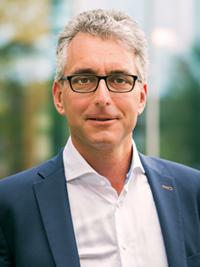
Peter Verhoef, Dean of the Faculty of Economics and Business, and member of the Recognition and Rewards Committee
‘I still see it as a great privilege to work at the University. It is a place of discovery, and of building and sharing knowledge. I do, however, sense a certain level of disenchantment. In my opinion, academics with a focus on teaching deserve greater acknowledgement, mostly in the form of career perspectives. I am personally committed to helping achieve this.’
Balance between team and individual
Balance between team and individual
At the UG, research is typically a team effort rather than being down to a single individual. That is why, to achieve excellence in research, teaching and impact, it is imperative that the academic setting is a healthy collaborative environment. Despite the importance of effective teamwork, we currently still have too great a focus on individual performance to the detriment of our acknowledgement of team contributions. To change this, we need to do more than tweak our performance assessment criteria. This calls for an organization-wide change towards a new balance in recognizing and rewarding individual and team performances.
Vision
The answer to creating a new balance between team and individual, and working towards a new inspiring, respectful, and productive collaborative culture lies in diversification. An effective team is a diverse team whose members each have unique talents and skills. Team diversity is a must, especially now that the demand for interdisciplinary research, in which team members come together to address complex social issues, is increasing. Besides diversification, team spirit is a key ingredient in successful teamwork. Team spirit is built around informal values, such as helping each other, being respectful of each other, and demonstrating collegiality.
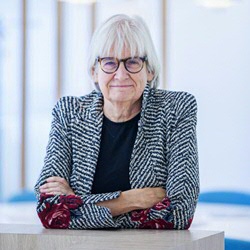
Elisabeth de Vries, Professor of Medical Oncology, Faculty of Medical Sciences (UMCG), and member of the Recognition and Rewards Committee
‘I hope that we will continue to improve our options for rewarding University staff for the important and widely varying work they do. There is a lot of relevant research that can only be performed by multidisciplinary teams. Each team member deserves to be suitably recognized for their team contribution.’
Faculty requirements
The Recognition and Rewards Committee has interviewed representatives of all faculties to find out what the faculties need to encourage team contributions and to recognize and reward team performance. In these interviews, the following suggestions were made:
-
Teamwork does not come naturally to everyone. The organization should offer more incentives for encouraging and rewarding teamwork.
-
Rather than focusing on the group leader/principal investigator, teams should be rewarded as a group. The same goes for nominations and awards.
-
More focus should be placed on the different roles in teamwork. A staff member may have different roles in a variety of teams in the organization.
-
Leadership courses should focus systematically on building stronger teams and on ways of showcasing and rewarding team contributions.
-
More focus should be placed on team-building to further improve the quality of the work environment and increase social safety.
-
A policy should be fleshed out for addressing team spirit/commitment in job interviews, encouraging and recognizing collaboration in the work setting, and applying team spirit/commitment as one of the hiring criteria for new positions.
Approach
Based on the updated vision and the faculties’ input, we will define a new policy for recognizing and rewarding team performance and encouraging a collaborative culture. At faculty level, the first steps towards changing the performance assessment criteria have now been taken. The Faculty of Economics and Business, for instance, has incorporated team contribution as a criterion in its academic selection and promotion policy. Similarly, the Faculty of Religion, Culture and Society has formulated a policy on competence development and now expects its staff to elaborate, in their performance and development (R&O) interviews, on how they contribute to the department as a team member.
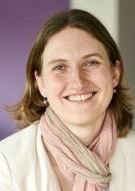
Merel Keijzer, Professor of English Linguistics and English as a Second Language, Faculty of Arts, and member of the Recognition and Rewards Committee
‘As a member of the Recognition and Rewards Committee, I look forward to further exploring the topic of diversity by focusing on team science and the role it can play in different disciplines. As a relatively young academic myself, I will focus specifically on early and mid-career academics, on talent development, and on diversification in career trajectories so that academics can discover where their talents lie and unlock their full potential at different stages of their career.’
Competence development
Competence development
By recognizing and rewarding a variety of academic competencies and talents, we will proceed to further improve the quality of research and teaching at the UG. In this UG track, we define how to address this in the context of recognition and rewards: from improving the effectiveness of competence development interviews to offering competence development workshops and courses.
Vision
At the UG, we want to give talent the opportunity to thrive by offering them a variety of career pathways with a focus on research, teaching, social impact, and healthcare. This is contingent on us defining a broader range of competencies within the organization, and recognizing and rewarding them. But defining the required competencies is not enough. We also have to ask ourselves how a staff member can learn to master the required competencies and apply them in their day-to-day work, and what tools the organization should provide to facilitate and encourage competence development.
Despite the fact that, at the UG, we strongly encourage academics to develop a wide variety of competencies, we do not expect them to excel in every domain. That is simply not realistic. What we do expect is that they, as a minimum, have the required competencies in the key areas of research and teaching.
Mladen Popović, Dean of the Faculty of Religion, Culture and Society, and member of the Recognition and Rewards Committee
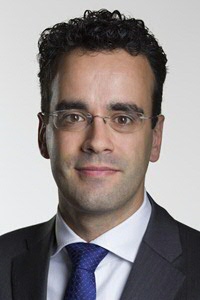
‘Recognizing and rewarding is also about development and unlocking people’s potential and talent in different ways and at different times. People are responsible for their own development, but they should be able to count on the organization for support in all stages of their career. As Dean, I have a helicopter view and, as a former member of the Young Academy Groningen (YAG), I focus mainly on the outlook for early-career researchers.’
Approach
In addition to changing interview formats, the Faculty of Religion, Culture and Society is conducting a competence development pilot so as to identify which competencies are essential in our organization and why. In the context of this pilot, the Faculty used the competence instrument for Dutch universities, which is an extensive list of competencies and related behavioural indicators, expertise questions, and development tips. They then proceeded to teach workshops in which staff members had a conversation with each other about competence development. Through a number of exercises, they were able to experience what the changes will look like.
Corporate Academy courses
The UG offers a range of personal and professional development workshops and courses for staff, all of which are offered by the Corporate Academy. You can filter for different learning objectives and areas of interest on the web page.
Workshops and courses
The Corporate Academy also offers two courses specifically tailored to talent development:
Further your own talent development
This workshop teaches you how to be successful in your R&O interviews with your manager.
Further your direct reports’ talent development
This half-day course teaches you to conduct successful development interviews with the people who report to you.
Changes in interview formats
One of the ways in which to recognize and reward diversity in competencies is to change interview formats, including that of the performance and development (R&O) interview. The goal in assessing the performance of academics and staff is to adopt a wider perspective with a focus on quality, subject matter, and creativity, as well as regard to team performance and academic leadership.
To flesh out these new interview formats, the Department of Marketing of the Faculty of Economics and Business participated in a pilot for conducting R&O interviews based on the MERIT model in 2022. In this context, MERIT stands for Management (M), Education (E), Research (R), Impact (I), and Team spirit (T). The model offers managers and their direct reports a framework for facilitating the discussion of these assessment criteria in the annual interviews. The pilot was met with an overwhelmingly positive response.
Downloads
| Last modified: | 23 January 2024 3.05 p.m. |
